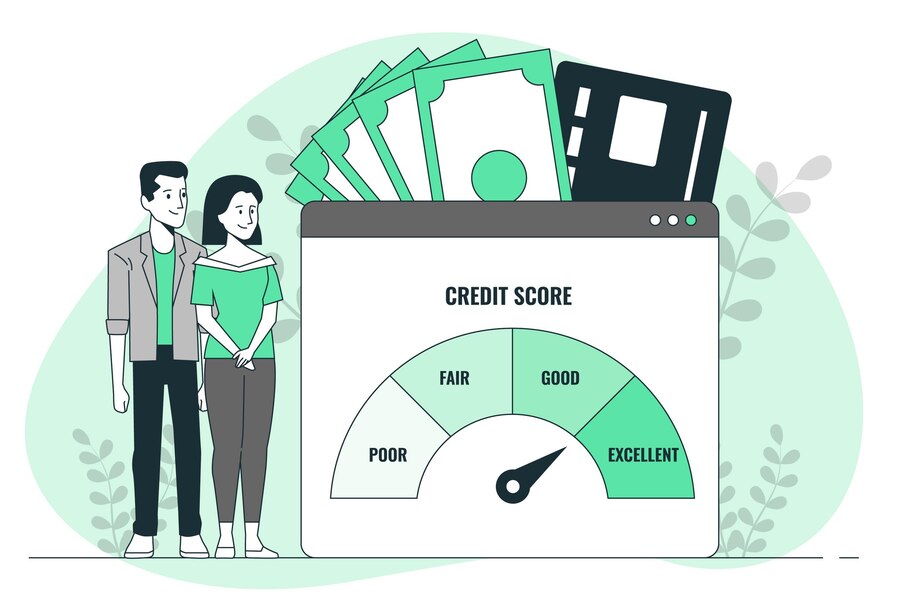Loan settlement is a financial relief option for borrowers struggling with loan repayments. It allows borrowers to negotiate with lenders and close their loan accounts by paying a reduced lump sum amount. While this may seem like a good solution to escape financial distress, loan settlement has a significant impact on your credit score.
In this blog, we’ll explore how loan settlement affects your CIBIL score, the long-term consequences, and ways to recover your creditworthiness after settlement.
What is Loan Settlement?
Loan settlement is a process where a bank or financial institution agrees to accept a partial payment of the total outstanding loan amount and closes the loan as “Settled.” This happens when the borrower is unable to make full payments due to financial difficulties such as:
✔️ Job loss
✔️ Medical emergencies
✔️ Business failure
✔️ Other financial hardships
Once the settlement amount is paid, the bank does not consider the loan fully repaid but instead marks it as “Settled” in the borrower’s CIBIL report. This is where the impact on credit score begins.
How Does Loan Settlement Affect Your Credit Score?
1. Lowers Your CIBIL Score
When a loan is marked as “Settled” instead of “Closed,” it negatively affects your CIBIL score because it indicates that you failed to repay the full amount. A settled loan can reduce your credit score by 50 to 100 points, depending on the loan type and amount.
2. Impacts Your Creditworthiness
A “Settled” status in your credit report signals that you are a high-risk borrower. Future lenders may hesitate to approve loans or credit cards for you. Even if they do, they may offer loans at higher interest rates.
3. Affects Future Loan Approvals
Most banks and NBFCs check credit history before approving new loans. A settled loan account stays in your CIBIL report for up to 7 years, making it difficult to get loans during this period. Some lenders may outright reject your application.
4. Reduces Chances of Credit Card Approval
After settling a loan, getting a new credit card may become challenging. Banks prefer customers with a good repayment history, and a settled loan shows financial instability.
5. Impacts Employment Opportunities
Many companies, especially in banking and finance sectors, check credit scores before hiring employees. A low credit score due to loan settlement can affect your job prospects.
Is Loan Settlement a Good Option?
Loan settlement is beneficial for borrowers facing extreme financial distress, but it should be a last resort due to its long-term impact on credit score.
When Should You Consider Loan Settlement?
✅ If you have exhausted all repayment options and cannot afford to pay
✅ If your lender agrees to remove “Settled” status after the payment (rare but possible)
✅ If you are ready to work on rebuilding your credit score post-settlement
When Should You Avoid Loan Settlement?
❌ If you can restructure your loan instead
❌ If you plan to take loans in the near future
❌ If you can arrange funds through other means
How to Minimize the Impact of Loan Settlement on Your Credit Score
If you must settle a loan, follow these steps to minimize damage to your credit score:
1. Negotiate for a “Closed” Status Instead of “Settled”
Some banks may agree to mark the loan as “Closed” if you make an additional goodwill payment after settlement. Always get this in writing before making the payment.
2. Request a No-Due Certificate (NOC)
After settlement, ensure you receive a No-Due Certificate (NOC) from the bank. This confirms that no further payments are due and prevents future disputes.
3. Start Rebuilding Your Credit Score
To improve your credit score after loan settlement:
✔️ Pay all other loans and EMIs on time
✔️ Use a secured credit card to build a positive credit history
✔️ Avoid taking multiple loans immediately after settlement
✔️ Keep your credit utilization ratio below 30%
4. Check Your Credit Report Regularly
Monitor your CIBIL report for errors. If the bank has incorrectly reported the settlement, dispute it with CIBIL or the lender to correct it.
Alternative Solutions to Loan Settlement
Before opting for loan settlement, consider these alternatives:
1. Loan Restructuring
Instead of settling the loan, ask your lender for loan restructuring. Banks may:
✅ Extend the repayment tenure
✅ Reduce the interest rate
✅ Offer a temporary moratorium on EMI payments
This helps in keeping your credit score intact while making repayment manageable.
2. Debt Consolidation Loan
If you have multiple loans, consider taking a debt consolidation loan at a lower interest rate. This allows you to repay your existing loans without settling them.
3. One-Time Settlement (OTS) Scheme
Many banks offer One-Time Settlement (OTS) schemes for specific loan types. Under this, banks offer settlement with flexible repayment options.
Final Thoughts
Loan settlement can provide short-term relief but comes with long-term consequences for your credit score and financial future. It should only be considered in extreme cases where repayment is impossible.



